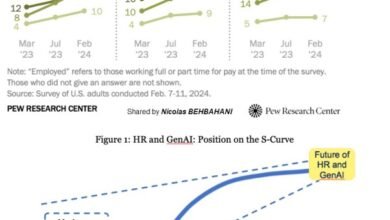
By | Charlie Fletcher
A strong uptake of vaccines is our most important tool in overcoming the COVID-19 pandemic. Yet, there is still a significant amount of reluctance. In April, the U.S. was issuing 3 million doses a day. The current daily number has dropped to around 650,000. This can be particularly concerning for business leaders who want to make sure not only that their workers can keep themselves safe from the virus but also limit the negative impact on colleagues and customers.
But what is the best response in this instance? Some large companies are introducing vaccine mandates to reinforce the importance of gaining protection. But a more balanced response may be to provide workers with reliable education to encourage them to make positive independent decisions on the matter.
We’re going to take a look at how your company can empower your workers in choosing to get vaccinated.
Open the Dialogue
Vaccine education should begin with providing an open forum to just talk about the issue. This should come before implementing any policies or even raising the potential for mandates. Just make it clear your organization is a safe space to calmly and reasonably discuss the vaccine rollout. This can help your employees feel more comfortable about seeking education on the situation. You need to lead by example here. Broach the subject in both casual conversations and meetings. If necessary, issue communications that explicitly state calm, professional vaccine conversations are encouraged.
Perhaps the most valuable aspect of this open dialogue is it gives opportunities to casually but effectively educate your employees. Discussions often lead to highlighting knowledge gaps. One of the common threads throughout this pandemic is some people simply don’t understand how vaccines work. Don’t be afraid to talk workers through the basics — vaccines teach your immune system to defend itself when exposed to germs and pathogens. You can then progress on to how vaccines are produced; particularly relevant at the moment is the distinction between vaccines that have mRNA or a viral vector as their active ingredient. Just talking about these aspects can clear up any confusion.
The other reason these discussions are so important is they pinpoint areas of misinformation to be addressed. So much of the hesitation to engage with the vaccine program is the result of politically charged and often erroneous data. Keeping an open dialogue allows you to see what concerns your employees are raising. This in turn allows you to source relevant educational materials and direct your approach to correcting their errors.
Leverage Expertise
Rampant conspiracies, inconsistent information, and inflamed opinions can make it difficult for your employees to know who to trust when it comes to the COVID-19 vaccine. You even have to acknowledge that you as a business leader are likely to have little medical credibility when it comes to the issue. As such, you should consider ways to leverage expert advice to better inform and influence your workers.
Recognize the potential for bringing expert guest speakers into your organization. Many medical professionals are keen to do what they can to encourage the public to engage with vaccines. Epidemiologists can be great sources in this regard, as their area of expertise includes the spread of communicable diseases and they’re actively involved with providing information that directs public health policy during a pandemic. Alongside in-depth assessment of the origins and impact of the virus, a key element of an epidemiologist’s responsibilities also involves developing public awareness programs. As such, they are well-positioned to both give credible expert advice on COVID-19 and the vaccine program but also communicate with your employees in a clear and jargon-free manner.
Even if it’s impractical to bring experts into your business, you can still benefit from their expertise. The Centers for Disease Control and Prevention (CDC) has issued guidelines to health departments about the importance of communicating with the public to build trust in the vaccine. As such, many will have literature designed to provide information and address concerns to give some clarity on the issue. Contact your local health administration to obtain some resources you can have on display in the break rooms and common areas of your workplace.
Prioritize Accessibility
While the variety of opinions certainly has a role to play in the vaccine drop-off, it isn’t the only factor. Accessibility can also be a contributing issue. This isn’t from the perspective of availability of the vaccine; there is generally more vaccine supply than demand. However, there is evidence to show there is a vaccine uptake disparity among single parents and those from marginalized socioeconomic backgrounds. This might suggest some of your workers may have personal challenges preventing them from getting vaccinated.
Educate yourself on what workers need from you to get vaccinated. This might be paid time off as they are unable to squeeze in time to get vaccinated between their employment and family duties. It could include finding ways for your staff to carpool to make sure those who don’t have personal transportation can easily get to a vaccination location.
It’s also important not to overlook the fact that some of your employees simply do not know they can get vaccinated for free or even where they can obtain their shot. Take the time to share resources to help direct your workers to locations vaccinations are taking place in their area. Provide them with links to government-run and privately operated vaccine-finder websites. It’s also a good idea to print a list with addresses of all the local pharmacies and health centers nearby supporting walk-in appointments.
Conclusion
As many people must get the COVID-19 vaccine as can do so. As an employer, you might find it’s more appropriate to encourage your workers to get vaccinated rather than issue a mandate. By getting your staff talking about it and offering sources of expertise you can start them on a strong road to positive vaccine education. This, alongside helping them to access the vaccine, can go a long way in empowering them to make an informed decision to engage with such a vital tool.






